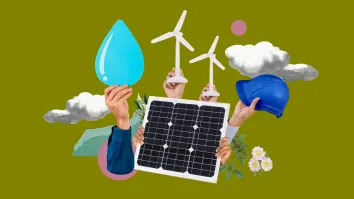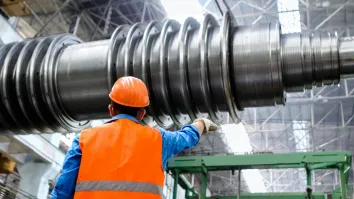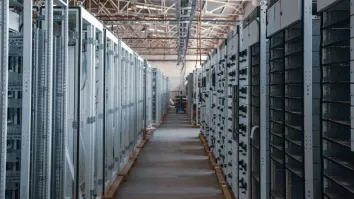
China's gas distributors to thrive despite declining connection fees: report
The slowdown in China's property sector affects both household and industrial gas consumption.
Amidst facing a drop in connection fees due to a sluggish property sector, China's gas distributors are expected to maintain earnings growth, according to S&P Global Ratings.
The report said these fees made up to 40% of some companies' gross profits in the past.
"China gas distributors can generate sufficient earnings momentum over 2024-2025 despite slowing economic growth and a declining property sector," said S&P Global Ratings credit analyst Colton Zhou.
"They can do this via sustained volume growth and diversifying into non-retail gas segments,” he added.
The slowdown in China's property sector affects both household and industrial gas consumption. Whilst consumption of materials like cement, glass, and steel is declining, sectors like non-ferrous metals and chemicals show potential growth.
Moreover, the increased capacity of gas power plants is also expected to boost gas power volumes in provinces like Guangdong, Shandong, Jiangsu, and Sichuan.
Rated distributors are also projected to achieve an average annual retail volume growth of 7%, surpassing the national rate of 5% to 6%. Kunlun Energy Co. Ltd. is set to lead with a 10% growth rate, driven by new industrial client acquisitions.
With a 4% annual decrease in gas costs, dollar margins are expected to improve by Chinese renminbi 0.01/cubic meter per year.
To counter the declining connection revenues, some gas distributors are focusing on diversifying into non-retail gas segments, including gas appliances and services, as well as integrated or distributed energy projects.
"Increasing diversification will help distributors overcome declining connection revenues over the next two years," said Zhou.
ENN Energy Holdings Ltd. and Towngas Smart Energy Co. Ltd. (TSEL) aim to derive 30% to 35% of gross profits from these segments, whilst China Resources Gas Group Ltd. targets 15%.
The forecast indicates a decline in new household connections by an average of 13% in 2024 and 7% in 2025, compared to an 11% decline in 2023.
ALSO READ: Power sector to drive 40% to 50% of natural gas demand by 2050
Connection fees vary among companies. Whilst CR Gas and TSEL rely on them for about 30% to 40% of their gross profits, ENN Energy's contribution stands at around 20%. In contrast, Kunlun is less affected, with connection fees accounting for less than 10% of its gross profits.
Despite these challenges, the report said distributors can maintain a ratings buffer through prudent capital spending and diversification.
“Key risks to our projections remain the uncertain recovery of industrial volume growth, particularly on further weakening on the property sector,” the report said.

















 Advertise
Advertise







